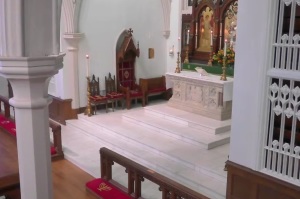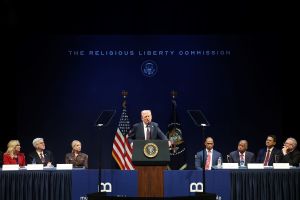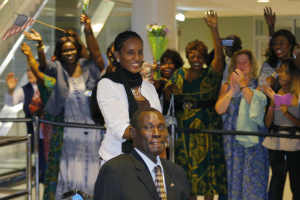After COVID-19 kills 60 members, church re-examines role in community
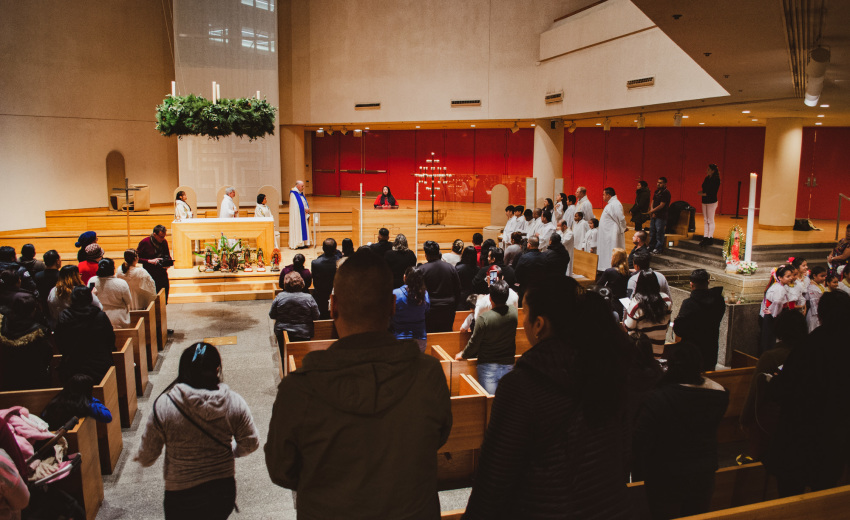
NEW YORK — In 2020, COVID-19 moved through the congregation at Saint Peter’s Lutheran Church in Midtown Manhattan like an invisible tsunami, leaving a trail of victims in its wake.
At the start of the pandemic last March, Saint Peter’s Lutheran Church was a thriving congregation of about 250. By May, at least 39 people connected to the progressive church had died from the virus, including about 5% of direct members.
Scores more would get sick.
In virtual masses, the congregation’s leader, Pastor Fabián Árias, would pray for the sick and the dead, calling their names while making supplications to God. Still, the church would lose some 24% of its members to the virus in the months that followed.
“There was a total loss of 60 members in that congregation to the virus,” Paul Egensteiner, Bishop of the Metropolitan New York Synod of the Evangelical Lutheran Church in America, told The Christian Post in an interview.
Now, as the nation re-emerges from the deadly pandemic that left hundreds of thousands dead and shuttered many churches across the country, Saint Peter’s Lutheran Church is trying to leave the burden of COVID-19 deaths behind and embrace the life left in its community again.
To do their jobs, many pastors in the New York Synod of the Evangelical Lutheran Church in America have been flexible and have used online tools such as Zoom to connect with members remotely, Egensteiner said. At the same time, congregants at Saint Peter’s Lutheran Church and across the synod are eager to come together in person as a family again.
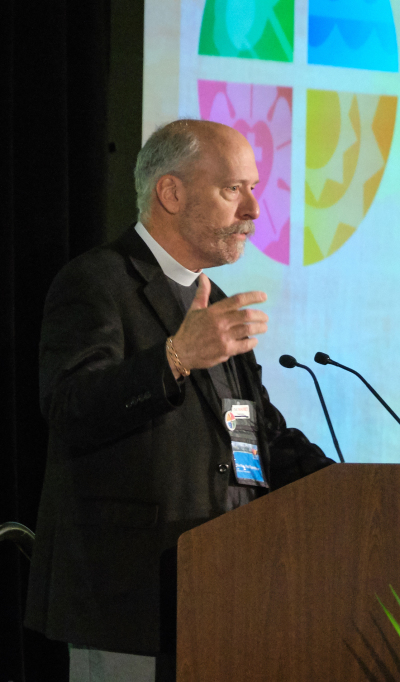
“There’s still what we’re experiencing a tremendous desire for people to be back in person, [to be] able to sing hymns. You can’t really sing hymns on Zoom because you have everybody on different timing, so people want to be back,” Egensteiner said. “They want to hear their voices joined together in praise for God. They want to be able to see one another’s faces and be in community together.”
While they are eager to leave the challenges of the pandemic behind, many of the churches in the New York synod, like Saint Peter’s, plan to use the lessons they learned from the pandemic to inform their ministry more effectively.
One of the reasons that Saint Peter’s lost so many members in the pandemic is that many of the members are immigrants, people of color and come from low-income households.
Some parishioners are also undocumented. Many were unable to work or access government aid during the height of the pandemic.
“Whereas especially here in New York, we get a report from our governor very often about the decreasing [COVID-19 infection] rates, the increasing vaccinations. Everybody is excited about the possibilities that open up for interaction. But that is also balanced, especially in our church, and St. Peter’s is an example of this, of not wanting to lose the lessons that we’ve learned over the past year,” Egensteiner explained.
“[Lessons] about reaching people through remote worship but also about how this pandemic has unevenly affected communities of color, our immigrant communities, our marginalized communities, and how we as a Church are called to address those needs and respond to the inequities and the injustice that has surfaced as a result of this pandemic. So there’s that balance between wanting to be back and not wanting to get back to normal. What has God shown us through this experience that reminds us of how we’re called to be Church at this time and address those real human issues for God’s children?”
Egensteiner pointed to issues emerging as major flashpoints during the pandemic, such as food insecurity and systemic racial inequities, which his synod hopes to address in more tangible ways in the wake of 2020.
“Over the course of the past year-plus, many of our churches reached out with feeding ministries. And now, there is concern to address some of the systemic reasons that people go hungry," he explained. "So hand-in-hand with our direct aid, we’re looking to strengthen our advocacy work. In fact, as part of our vision plan, one of the focus areas of our vision plan is advocacy to change some of the systemic issues in our society. And the other thing that we’re really working on is to partner congregations that maybe don’t have that direct access to some of these concerns with congregations that are in the middle of those communities and neighborhoods that experience that impact."
One of the first steps to address the disproportionate impact of the pandemic on communities of color is vaccination. Egensteiner said his denomination supports congregants getting vaccinated.
“Our national bishop has been very clear on advocating for vaccinations because that’s how we show love for others, and that’s one of our central priorities is to love all people,” he said.
Despite his denomination’s policy, however, Egensteiner says they also respect congregants who choose not to get the COVID-19 vaccine.
“We don’t out people who don’t get the vaccine. This one congregation, in particular, has two sections in their Sunday morning in-person worship — vaccinated people and unvaccinated people,” he said. “We’re still welcoming unvaccinated people for whatever reason they don’t want to get the vaccine but definitely encouraging people to get vaccinated to allow for more of the togetherness and activities that are important to us.”
Egensteiner also acknowledged that as congregants return to the pews, they will also be paying attention to the pandemic's mental health impact by making sure pastors are healthy enough to serve.
“Recently, the president of the Atlantic District of the Missouri Synod of the Lutheran Church convened a gathering of all our institutional chaplains to talk to them about what their work is like and to provide support because they’re often on the frontlines [helping] people who are dealing with both physical and mental health issues," the bishop said.
He said that the denomination is "providing direct support to our chaplains who then provide support to people struggling with those issues."
Egensteiner said the plan is to convene meetings in the fall covering four areas of the synod. The meetings will bring pastors together to allow them to "share their stories and their struggles."
"[I]n the Lutheran system, congregations are the most important places where direct impact on people’s lives take place," he said. "And if our pastors aren’t healthy, they can’t provide adequate pastoral care to the people in their congregations and their communities. So we’re really focusing on the health and well-being of our pastors.”
The New York bishop says the most critical lesson he believes all churches can take away from the pandemic is the importance of providing people with community to provide for their spiritual needs.
“What we realize that we’re learning is we need community. We need in-person community, not just online community. And I’m not diminishing the importance of online community because it has helped a lot of people. But we need that in-person community,” he assured.
“We need that community in whatever form — online or in-person — to be as the Church, the community that provides us with identity and meaning. That centers us in a deeper identity than the realities or the partisanship that’s so much part of our world."
And that identity, he said, acknowledges that “every single person, that all of creation is beloved of God.”
“If we can appreciate that identity together, and congregations are really good at this, they have their differences, but they’ll worship together. And we take that shared identity, and we use that as a launching point to bring that message up to the world to build bridges and relationships and larger community," Egensteiner said.
"That can help us to tackle some of these systemic problems in more creative and united ways than we have been able to so far. I think that we’ve really learned that the Church which has this, to quote Saint Paul, ‘the treasure of the Gospel in clay vessels,’ in breakable jars, must give itself away for the sake of the world because Christ has entrusted us with this message that is exactly … what the world needs to hear. And we can’t be shy about that because the message that we have is as critical as it always was.”
















